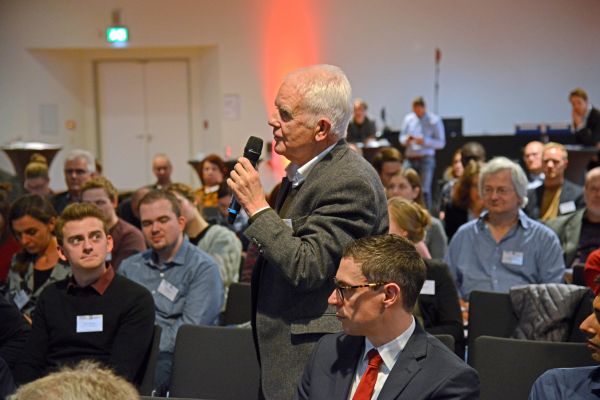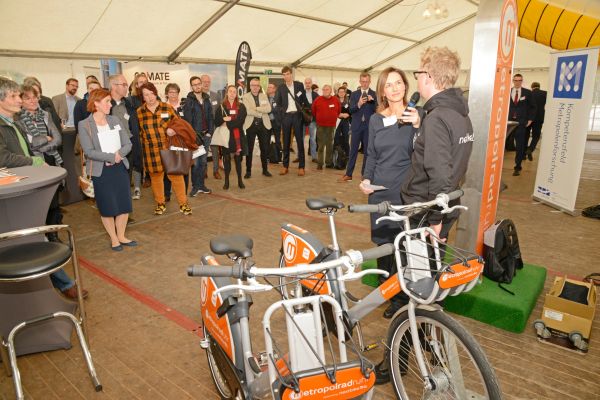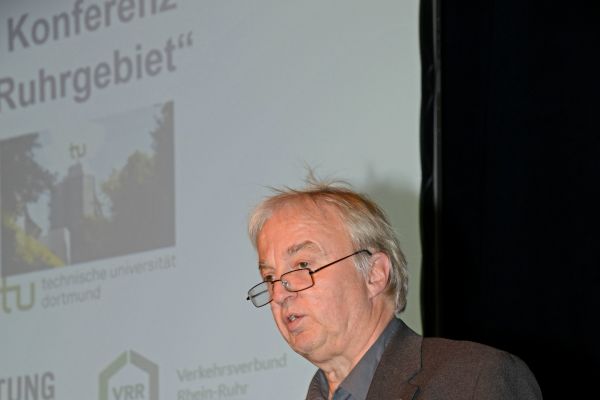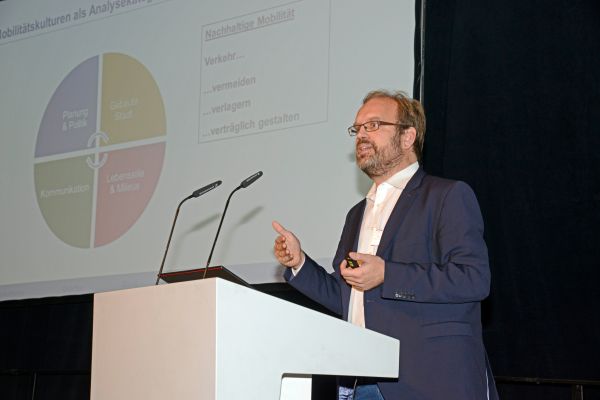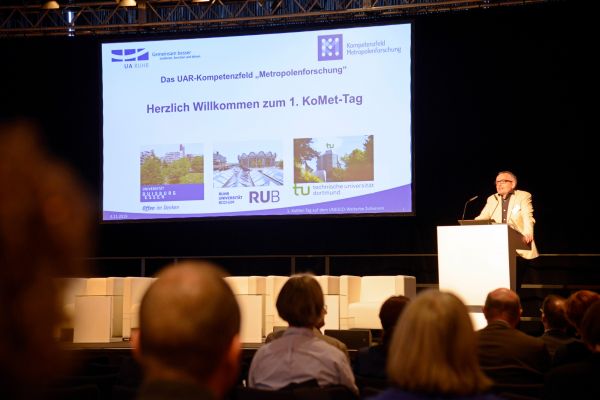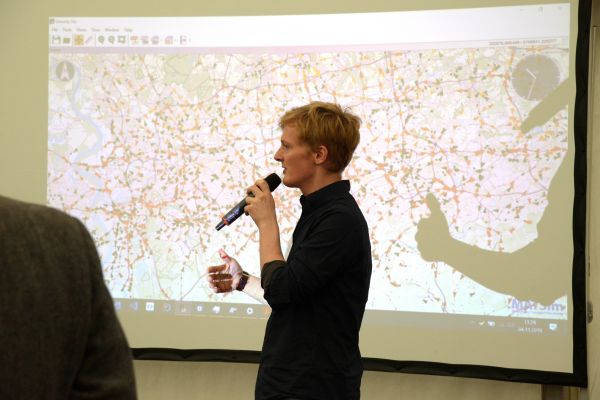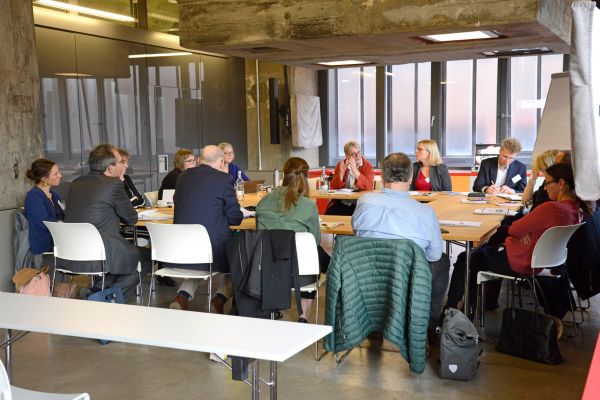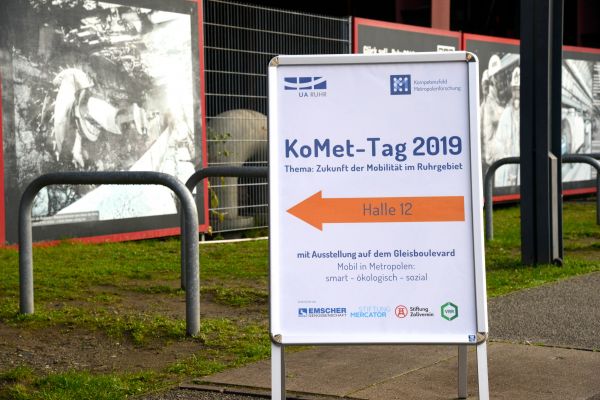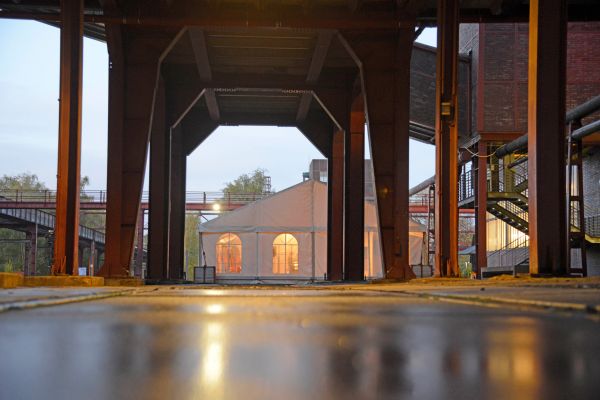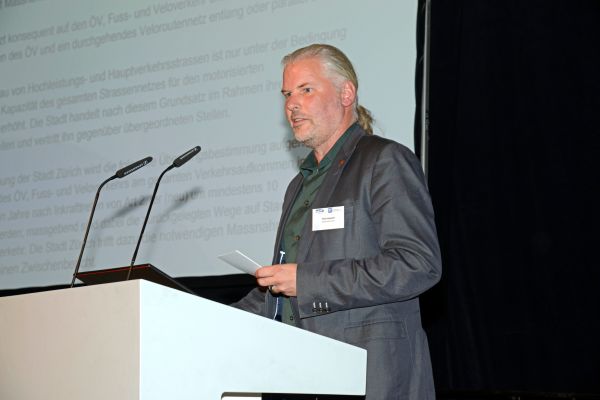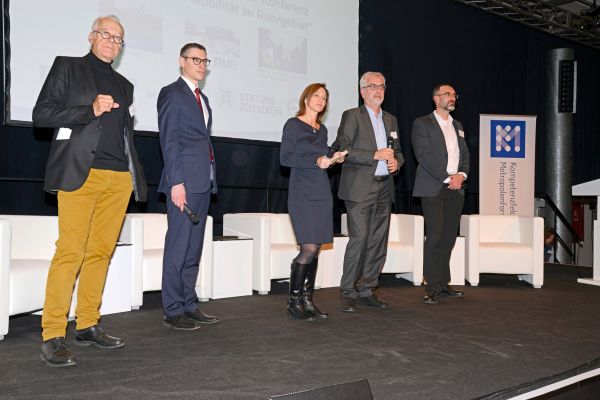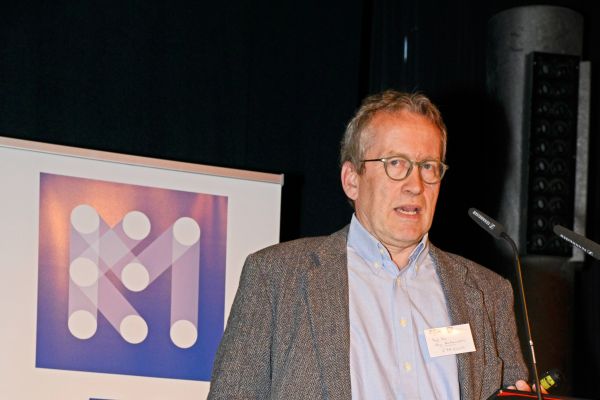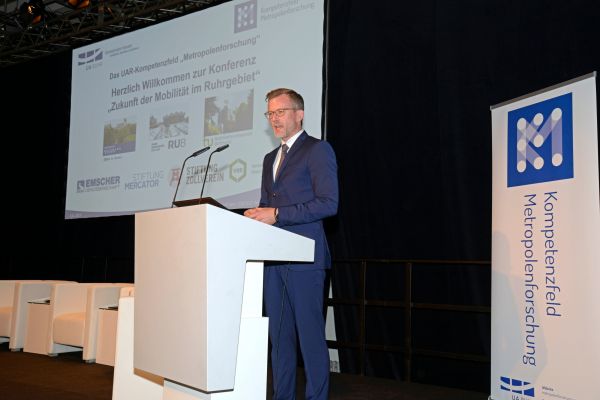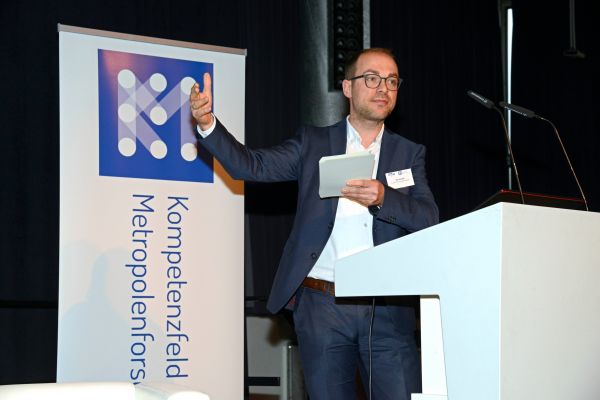KoMet Conference (KoMet-Tag)
The KoMet Conference (KoMet-Tag) is the annual exchange and meeting format since 2019 and one of the annual highlights among the events in the competence field metropolitan research (KoMet). The event is interdisciplinary and addressed to researchers, as various regional, national and international stakeholders and interested participants from economy, politics and civil society.
Each year, the event addresses a current topic of metropolitan research in the form of a large-scale conference. The researchers of KoMet provide insights into their research activities. Contributions from other national and international experts enhance the event's format. Panel discussions and interactive participation opportunities enable a vivid and varied discussion. The “KoMet-Tag” meeting format also serves as an annual meeting of all KoMet researchers. The meeting takes a retrospective look at the research activities of the participants and discusses future activities of the KoMet.
KoMet Conference 2023:
Transformative Science - What Role for Real-World Laboratories?

On December 7, 2023, the 5th KoMet-Tag took place on the topic Transformative Science - What Role for Real-World Laboratories? This year's event was jointly organized by the two KoMet academics Prof. Dr. Petra Schweizer-Ries (Bochum University of Applied Sciences) and Prof. Dr. Renée Tribble (TU Dortmund University).
At KoMet Tag 2023, the concept of the "real-world laboratory" was to be sharpened, but also questioned and specified from different perspectives. KoMet-Tag 2023 focused on the following questions: Who are researchers, who are co-researchers? In terms of a collaborative research approach - such as that of participatory action research - can all steps from formulating the question to evaluation actually be developed and carried out in co-formats? At the same time, real-world laboratories in the city are not laboratories in the scientific sense, but are unique in terms of location, time, knowledge and individual participants. In contrast to experiments in laboratories, it is not possible to return to the initial state, as changes in experiential knowledge are always generated, which trigger an inner transition. In view of this, should we speak of "laboratories" at all? What understanding is needed for real-world laboratories as transformative science?
KoMet Conference 2022: Complexity and transformation science perspectives on sustainable urban development
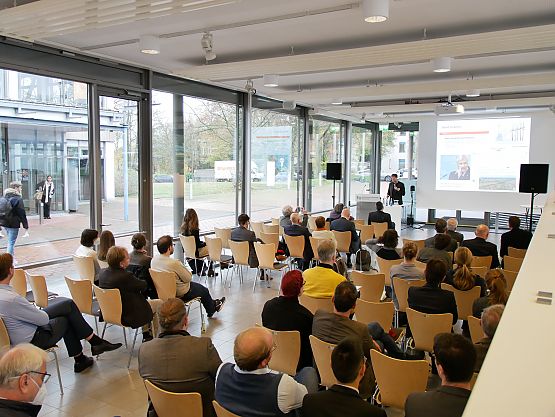
Cities are complex adaptive systems. The constitutive element are the manifold interactions between heterogeneous actors whose behaviours change throughout time, as they react and adapt to other actors actions and changed environmental conditions. Since the 1980s cities around the world have been studied in a complex manner.
In this context the 4th KoMet Conference was designated to the thematic framework of “Urban Complexity – Complexity and transformation science perspectives on sustainable urban development”, aiming to gain a better understanding of how cities emerge, develop, grow or shrink, what promotes or inhibits social as well as technological innovations in cities and which planning and managing instruments are necessary for their formation.
The summary of the Conference can be found HERE.
KoMet Conference 2021: Smart Metropolitan Solutions

"Smart Metropolitan Solutions – Pathways to Climate-Neutral and Resilient Cities" was the topic of the 3rd KoMet Conference. Against the backdrop of the EU Commission's European Green Deal, the discussion focused on the following central questions: How can smart city approaches be used to deal with current challenges of a climate neutral and resilient city development from a technological, economic, social and ecological perspective? Which (un)desired side effects are connected to the concept of the smart city? How can resilience and sustainability be brought together in an intelligent way?
The summary of the KoMet Conference can be found HERE.
KoMet Conference 2020: Future Narratives for Metropolitan Regions
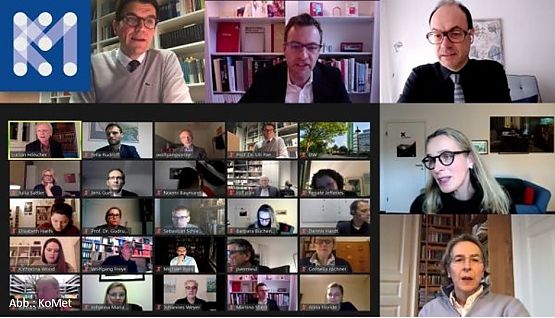
The 2020 Conference of the Competence Field Metropolitan Research (KoMet) was dedicated to past as well as present images of metropolitan futures: What do desirable futures for metropolitan regions look like? What has become of earlier visions about the future? And what does the concept of "narrative" actually imply? During the conference entitled "Future Narratives for Metropolitan Regions" held on December 14, 2020, academics and practitioners discussed ideas for the future of metropolitan spaces both in the Ruhr Region and internationally. The event supported by the Emschergenossenschaft and Stiftung Mercator. Approximately 180 participants took part in the virtual event.
KoMet-Conference 2019: Future of Mobility in the Ruhr Region
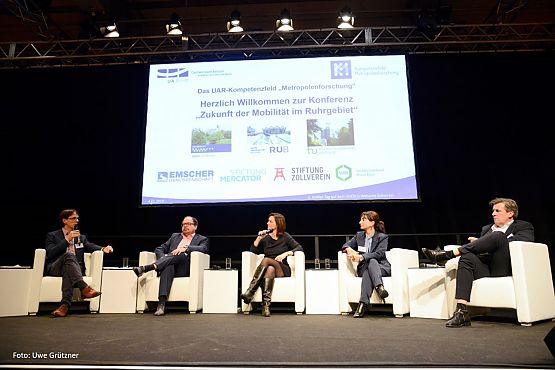
Reliable, environmentally friendly, efficient, healthy, smart - there are many expectations for the mobility of tomorrow. The measures and strategies required for the Ruhr region and how other metropolitan regions in Germany and abroad are dealing with similar challenges was the subject of discussion among experts from academia and practice at the first KoMet Conference in Essen at the Zollverein World Heritage Site on November 4, 2019. Visions, innovative approaches and feasible solutions to current challenges in the field of transport were presented by KoMet in cooperation with its partners Emschergenossenschaft, Stiftung Zollverein, Stiftung Mercator and Verkehrsverbund Rhein-Ruhr.
Impressions "KoMet-Tag" 2019
Photos KoMet-Tag 2019: Uwe Grützner
